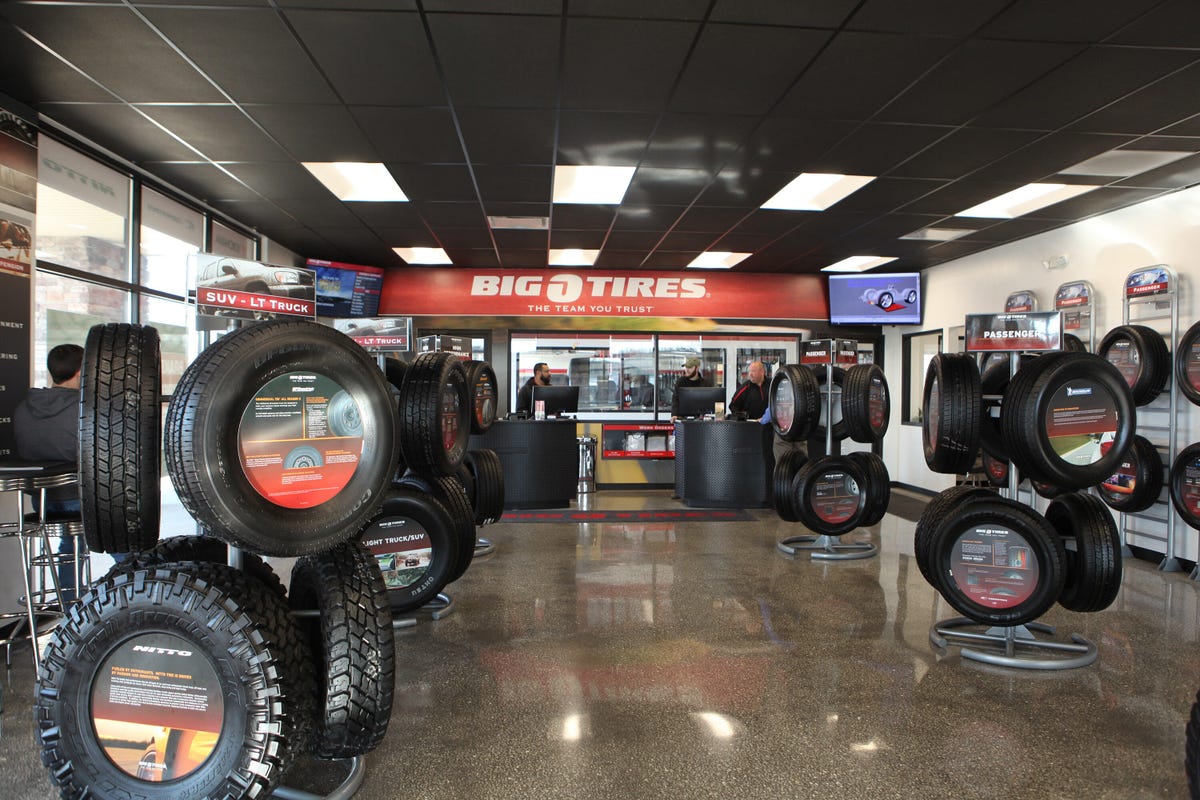The Environmental Advantages of Correct Tire Upkeep
Preserving appropriate tire treatment is commonly overlooked, yet its effect on the setting is extensive. Appropriate tire maintenance not only prolongs the lifespan of tires however likewise decreases landfill waste and contributes to boosted air quality.
Lowered Gas Consumption
Improving tire upkeep methods can lead to a substantial reduction in fuel consumption for lorries. According to the U.S. Division of Energy, underinflated tires can lower gas mileage by 0.2% for every 1 psi decrease in stress in all four tires.
Along with tire stress, regular tire turnings and placements also play a critical role in gas effectiveness. Erratically worn tires can enhance gas intake as the engine functions harder to preserve speed and traction. By preserving proper alignment and turning tires at advised intervals, motorists can make sure even use and prolong the life of their tires, eventually saving gas and decreasing their carbon footprint.
Extended Tire Lifespan
Expanding the life-span of tires is a crucial element of reliable vehicle maintenance practices that can generate cost financial savings and ecological advantages over time. By appropriately preserving tires, motorists can considerably prolong their functionality, minimizing the regularity at which brand-new tires require to be made and old ones taken care of. This not just preserves beneficial sources however additionally lessens the energy and emissions linked with tire manufacturing and disposal processes.
Regularly inspecting tire pressure, rotating tires, and guaranteeing appropriate alignment are necessary actions in prolonging tire lifespan. Appropriate tread deepness is vital for optimal grip and safety, yet it also contributes in just how lengthy tires can be utilized prior to requiring replacement. Additionally, staying clear of hostile driving actions that accelerate tire wear, such as severe stopping and sharp turns, can further improve tire sturdiness.
Ultimately, enhancing the long life of tires through aggressive maintenance not just benefits the setting by lowering waste and conserving resources yet also results in set you back financial savings for car owners by delaying the need for brand-new tire acquisitions.
Reduced Exhausts Outcome
Efficient tire maintenance techniques add to a reduction in emissions output, lining up with ecological sustainability objectives in the auto market. Correctly inflated tires, regularly turned and aligned, can enhance gas effectiveness, hence lowering the total co2 exhausts from vehicles. When tires are informative post underinflated, the engine should function more challenging to push the vehicle, leading to raised gas intake and greater discharges. By maintaining optimum tire stress levels, drivers can assist reduce these adverse environmental impacts.
Moreover, properly maintained tires also enhance traction and decrease rolling resistance, better enhancing gas efficiency. This, subsequently, lowers the amount of exhaust gases released right into the ambience. Furthermore, ensuring tires are properly inflated and straightened can prolong the life-span of the tires, lowering the frequency of tire replacements and the connected ecological costs of tire manufacturing and disposal.

Lowered Landfill Waste
Offered the favorable impact of appropriate tire maintenance on reducing exhausts output, another substantial ecological advantage is the potential for lowered garbage dump waste. By making sure that tires are effectively pumped up, straightened, balanced, and rotated frequently, their life expectancy can be substantially prolonged.

Improved Air High Quality
Enhancing air quality through correct tire upkeep you could try here practices is an essential aspect of sustainable environmental stewardship. When tires are underinflated, they produce more rolling resistance, bring about raised gas intake and greater exhausts of hazardous contaminants such as carbon monoxide gas and nitrogen oxides. Effectively filled with air tires not only boost fuel effectiveness yet also reduce the quantity of pollutants launched into the air.
Additionally, well-kept tires with correct walk depth and placement add to safer motoring conditions, lowering the likelihood of accidents that can cause the launch of added pollutants right into the atmosphere. By prolonging the life-span of tires through routine maintenance and turning, less tires are discarded too soon, lowering the environmental impact of tire disposal and manufacturing processes.
Verdict
Finally, appropriate tire upkeep supplies various ecological benefits. By minimizing fuel intake, extending tire life-span, decreasing discharges output, decreasing garbage dump waste, and enhancing air quality, individuals can add to a healthier earth. These initiatives not only benefit the environment but likewise help to conserve resources and lower total environmental influence. It is essential for individuals to prioritize tire upkeep as a straightforward yet reliable way to safeguard the setting for future generations.
Correct tire maintenance not only extends the lifespan of tires but additionally reduces garbage dump waste and adds to improved air top quality - discount tires morris il. By maintaining appropriate alignment and revolving tires at advised periods, chauffeurs can make certain also prolong the life and use of their tires, inevitably saving fuel and reducing their carbon impact
By properly keeping tires, chauffeurs can significantly extend their functionality, reducing the regularity at which brand-new tires need to be manufactured and old ones disposed of.On a regular basis examining tire stress, turning tires, and ensuring correct alignment are essential actions in expanding tire life-span. Additionally, ensuring tires are properly inflated and this lined up can prolong the life-span of the tires, lowering the frequency of tire substitutes and the connected ecological prices of tire production and disposal.